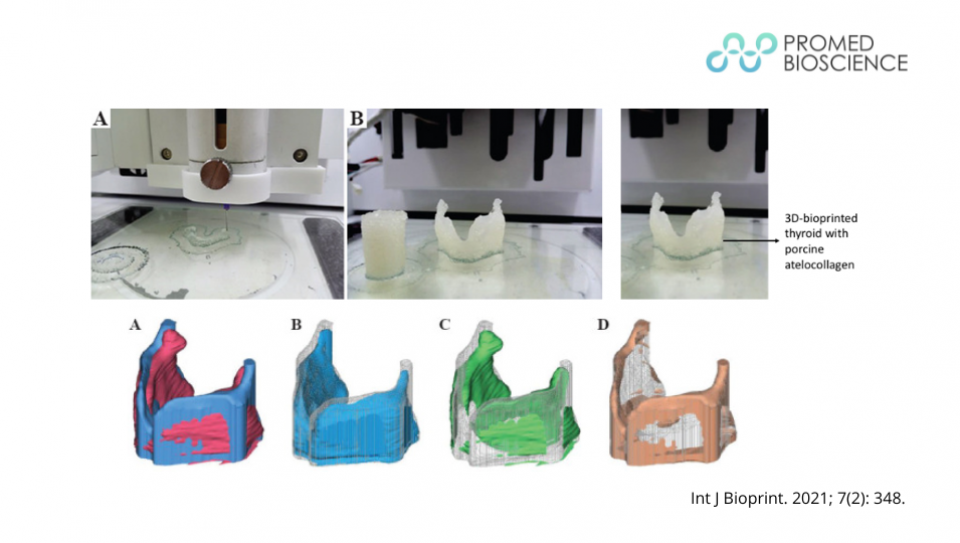
BIOMEDICAL RESEARCH NEWS, AND ARTICLES
Porcine Atelocollagen Type I As The Primary Scaffold Material In 3D-Bioprinting

Tissue engineering applications utilize scaffolds that are constructed from various biocompatible materials before they are seeded with cells and supplied with the right biochemical signals to grow into the tissue of choice. Bioprinting is an emerging technology that is especially suited for the biofabrication of scaffolds with complex or customized geometry. The ability to reproduce both the internal structure and the external geometry of a specific organ or tissue is a key advantage of the approach.
A recent study in the International Journal of Bioprinting outlines the use of porcine atelocollagen type I as the primary scaffold material in 3D-bioprinting of thyroid cartilage. Porcine Atelocollagen was used as the bioink to construct a 3D scaffold to mimic the structure and the shape of the human thyroid gland.
Collagen, due to its excellent biocompatibility, is one of the most promising materials for 3D organ bioprinting, while its mechanical properties can also provide the scaffold with stability during and after the printing. Collagen has already been utilized as the biomaterial of choice to help construct additional cartilage tissues, thus further enhancing the potentially significant role of porcine atelocollagen formulations in organ and tissue regeneration.
To learn more about Promed Bioscience’s collagen-based biomaterials please send us an email to info@promedbioscience.com